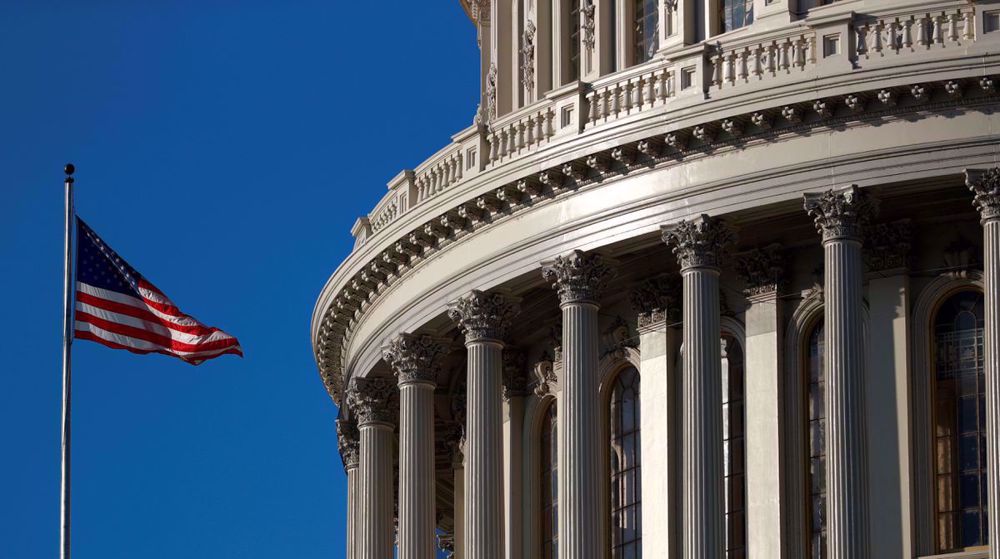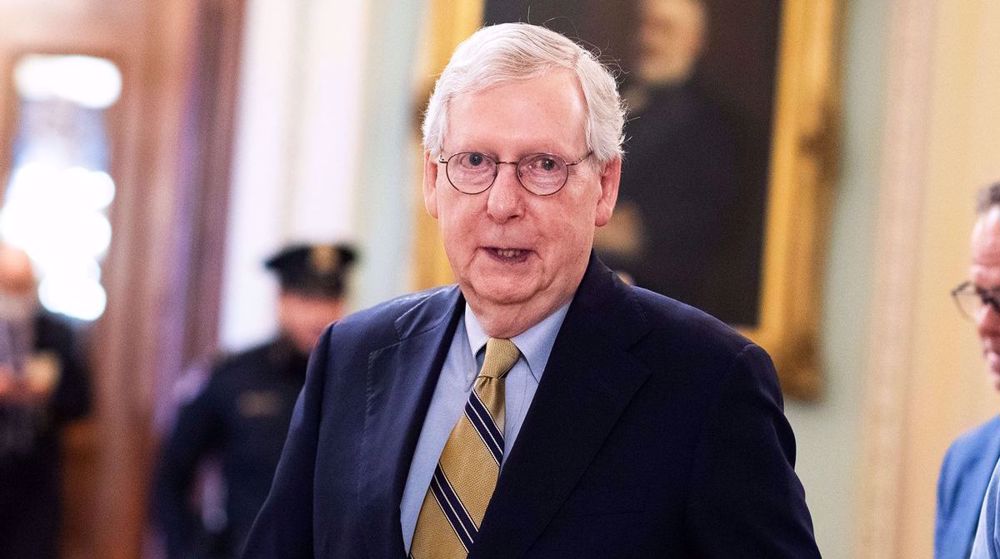US House votes for short-term debt ceiling increase, averting default
The US House of Representatives has voted to temporarily raise the government's borrowing limit to $28.9 trillion to enable it to continue borrowing money to pay the bills for two months.
The Democratic-controlled House on Tuesday afternoon gave the final approval to a Senate-passed bill, putting off the risk of the US government defaulting on trillions of dollars of debt until early December.
The bill had already narrowly cleared the 60-vote threshold to pass the Senate on Thursday.
Democrats on Tuesday maintained party discipline and passed the $480 billion debt limit increase but now would face another deadline within weeks for avoiding both a historic debt default and a temporary government shutdown.
The vote was along party lines, with every yes from Democrats and every no from Republicans.
US President Joe Biden is expected to sign the measure into law before Oct. 18.
The measure offers only a temporary reprieve, and it is likely to set up another round of fighting between Democrats and Republicans in December.
"We have temporarily averted crisis ahead of next week’s deadline, but come December, members of Congress will need to choose to put country before party and prevent default," said Democratic Representative Richard Neal, chairman of the House Ways and Means committee.
US Treasury Secretary Janet Yellen has said she believes the economy would fall into a recession if Congress fails to raise or suspend the debt limit before the country defaults on trillions of dollars of debt.
Biden has accused Senate Republicans of taking a "reckless" position in refusing to join Democrats in voting to raise the government's $28.4 trillion (28,400 billion) debt limit.
Biden called on Congress to raise the debt limit and avoid approaching economic turmoil.
Senate Republicans have twice in recent weeks blocked action to raise the debt ceiling. They say Democrats can use a parliamentary maneuver known as budget reconciliation to act alone, while senior Democrats have rejected using that approach.
But last week, 11 Republicans helped advance the short-term debt ceiling extension, after a weeks-long standoff between Republicans and Democrats over raising America’s $28.4 trillion debt ceiling.
A day earlier, Senate Republican Leader Mitch McConnell offered to let Democrats pass the short-term extension that is expected to last into early December.
McConnell wrote to Biden on Friday that he would not work with Democrats on another debt limit increase.
"I will not be a party to any future effort to mitigate the consequences of Democratic mismanagement," McConnell wrote to Biden, claiming another vast spending bill would hurt Americans and help China.

Trump admin. declares thousands of living immigrants dead, pushes for ‘self-deportation’

China raises retaliatory tariffs on US goods to 125%

Trump policy protest erupts outside US Congress
Iran, US conclude negotiations in Oman, agree to continue next week
Iran and US hold indirect talks in Oman
Iraq hopes indirect Iran-US talks lead to regional stability
US rights advocates file lawsuit to halt Trump’s sanctions on ICC prosecutor
Israel waging psychological sabotage campaign against Oman talks: Report
EU youth mental health crisis
VIDEO | New York students protest student deportations
VIDEO | Press TV's News Headlines








 This makes it easy to access the Press TV website
This makes it easy to access the Press TV website